Here’s why I don’t work on other people’s cars for money

Those of us who are backyard mechanics know the drill. Maybe the request comes from a buddy with the same vintage car that has become our shared lifelong passion (in my case, that’s 1970s-era BMWs). Or maybe it’s a single mother at the end of her financial and emotional rope who just received a nosebleed-inducing quote on a muffler for the minivan. She knows your spouse, your spouse mentions it to you, you sigh, and against your better judgement you say, “Tell her to bring it by.”
It’s rarely a good idea. It can often land you in “no good deed goes unpunished” territory.
Having said that, before I spin out the stories, let me immediately walk it back. Believe me, being an automotive savior is just about the best feeling ever. Whether it’s a jump-start … or cleaning someone’s corroded battery terminals and having their car spring to life … or an illuminated check engine light for which you can read the code and assure the person that it’s a get-to-it-when-you-can issue and not something imminent that’s about to cause damage … or a low tire for which you show up with a cigarette-lighter compressor, a can of Fix-O-Flat, and a floor jack and use whichever is necessary and appropriate … few things feel as good as being a knight in shining armor.
The problem is that although some repairs are a quick-in-and-out, most aren’t. Many have an unclear diagnostic process and a slippery slope for completion, and you, as a do-it-yourselfer, aren’t often equipped to deal with them, particularly on an unfamiliar car. It’s one thing if you snap off a bolt on your own car and have to spend hours dealing with it before moving back onto the repair itself; it’s quite another if it’s someone else’s car. If you’re doing it for free, you begin to resent it. If you’re not doing it for free, it raises all sorts of other issues—insurance, permits, etc. It’s easy for both parties to feel dissatisfied with the result.
The first time this happened was during my sophomore year in college, fairly early on in my wrenching years. I’d owned my 1970 Triumph GT6+ since graduating high school. As I’ve written, it constantly broke down, so both the car and my ability to fix it myself became pretty well known in my circle of friends. My friend Paul had a VW Beetle that needed brake work. He was poor and begged me to fix it. I eventually relented and told him that if he bought the parts, I’d install them for him. Unfortunately, in addition to front pads and rear shoes, I discovered that the car had a leaking rear-wheel cylinder. This was a rusty New England car with Fred Flintstone floors, and the brake lines didn’t look much better. I explained to Paul that there was risk of the line snapping when I unscrewed it, but there we were, with the car jacked up in the dorm parking lot, at 3 o’clock on an October afternoon with daylight burning. He asked me to press on, and—you guessed it—twang went the brake line.
Nowadays, of course, I’d know how to deal with it. First, I would have tried to prevent it from happening by first heating up the brake line fitting with a torch and using penetrating oil or wax to loosen it. But at the time, I probably still thought that WD40 loosened stuck fasteners (it doesn’t). And now, when a brake line snaps, I known how to deal with it, either by buying a replacement, or by making my own with copper-nickel tubing, a flaring tool, and the correct fittings. At the time, however, this exceeded my nascent mechanical capabilities, so there was little choice but to take it to a real repair shop. To avoid paying for a tow, I put the brakes back together as best as I could and drove the car to the shop at 2 a.m. with only the other half of the tandem braking system and the handbrake to slow it (a risk I’d never take now). Paul wound up having to pay more than what it would have likely cost him had he simply taken it in for a brake job. He didn’t blame me for what had happened, but it was a highly unsatisfying experience for both of us. It warned me off working on other people’s cars for about 15 years.
Then, in the late ’90s, my wife and I were in a band with a guy named Blair who owned a 1979 VW bus. The exhaust in his bus had gotten loud, he knew that I fixed my own cars, and that my wife and I had owned a succession of similar buses (as well as Vanagons), and he asked for my help. I gave him a lengthy monolog on the slippery slope of exhaust work—that if one exhaust component has a hole, the odds are that the others aren’t far behind; that new and old pieces often don’t seal well against one another; that, on air-cooled VWs, the heater boxes are a part of the exhaust and they’re bolted to the head; and that having to remove the nuts on head studs is rife with danger because if the stud snaps, you’re in for a world of hurt, as the head may need to be removed in order to drill out and replace the snapped stud. This dissuaded him for several months.
But as the van’s exhaust got louder and louder, Blair begged me to give it my best shot and swore that if something went south, he wouldn’t hold it against me. He bought an all-new exhaust along with replacement heater boxes. I did use heat and penetrating oil on the nuts holding the boxes to the head studs, but regardless, when loosening one of them, I felt that sickening sensation of it twisting without any accompanying screeching or the loud crack of a nut coming free, and the stud snapped off.

Blair shrugged, but that was only because he didn’t really understand how serious this was. In theory, you can try to drill the stud out with the head in place, but I was concerned about messing up the head. I put the replacement heater boxes and the new exhaust on, and it was way quieter than it was before, but it was obvious that some exhaust was leaking past the gasket on the exhaust port that had only one stud instead of two, and such things only get worse over time. Again, I was left with the feeling that I’d done something wrong. “I am never going to do this again,” I said to myself.
And I didn’t. For almost another 15 years.
Until a woman I went to high school with put out a call on social media saying her car needed brakes and she didn’t have any money. She’s someone who used to be a very good friend and unfortunately had developed health issues, lost her job, and was on disability, so I said I’d look at it. It was a rusty old Subaru that anyone with a paycheck and a commute would’ve junked, but it was all she had. Fortunately, she had a printed estimate from a repair shop that itemized what was needed, which included not only rotors and pads but also a front caliper. When I called a local parts store to find out availability of the parts, there seemed to be some confusion over the size of the rotors, so I put the car up on my mid-rise lift and measured them directly, then picked them up. Unfortunately, when I began the repair, it turned out that the pads I was sold didn’t match the rotors, and by this time, the store had closed. Oh, yeah, it was Sunday evening. She didn’t have to work the next day, but I did.
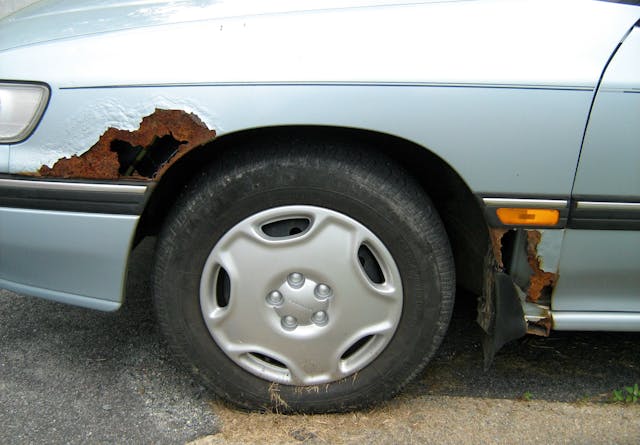
I made it into the nearest AutoZone by the skin of my teeth and bought pads that matched the rotors. I put everything together, bled the brakes, was about to test-drive the car, and found that the brake pedal went right to the floor. If a central brake component like the master cylinder is replaced, it’s not uncommon to have to bleed the brakes multiple times, but it’s a little unusual when it happens on replacement of an outlying component like a caliper. Finally, I got the pedal to firm up, but something in the brakes still didn’t feel right. It was probably just that more bleeding was needed, but I would’ve hated to be wrong and for it to be the master cylinder.
It was now 9 p.m. on a Sunday, I’d been dealing with the car for almost nine straight hours, and my wife was entertaining the woman in the living room. There was nothing wrong with any of this—in fact, it fit with my self-image of helping people, particularly old friends—but it did need to have an endpoint. I sent her home with the instructions to call me if the brake pedal travel suddenly increased (it didn’t). It was a very odd feeling sending an old friend off in a car whose brakes had some vague asterisk on them, and I was relieved when I learned that, a few months later, she did get another car. But not unlike the first two examples, I was left feeling like I’d done something wrong, and I swore I’d never do it again.
And I didn’t, until circumstances forced me to. And again, the issue was brakes. When I abruptly lost my job in 2016 and had to scramble for income, I did briefly hang out a shingle and let it be known in the local vintage BMW world that I’d wrench for actual money. A friend of mine had bought a long-stored BMW 2002 and asked me to sort it out. He had it towed to my house. As part of the work, I did what I considered a full brake job—front calipers, rotors, and pads, rear drums shoes, and wheel cylinders, and new braided stainless flexible brake lines. About a month later he called me, saying that he was about to drive the car that morning, but the brake pedal went right to the floor. When he looked closer, he saw that the brake fluid reservoir was empty, and found brake fluid on the garage floor, in front of the driver. I was absolutely livid. I told him I’d have the car towed to my house at my expense and would fix it. It turned out that the brake master cylinder had been leaking fluid asymptomatically into the power assist booster, only spilling on the ground when the booster had literally filled up. I replaced them both at no charge. With the nightmare of someone getting killed due to brake failure on a car whose brakes I’d just worked on, I realized that I either needed to go all in and get permits and insurance or stop. I stopped.
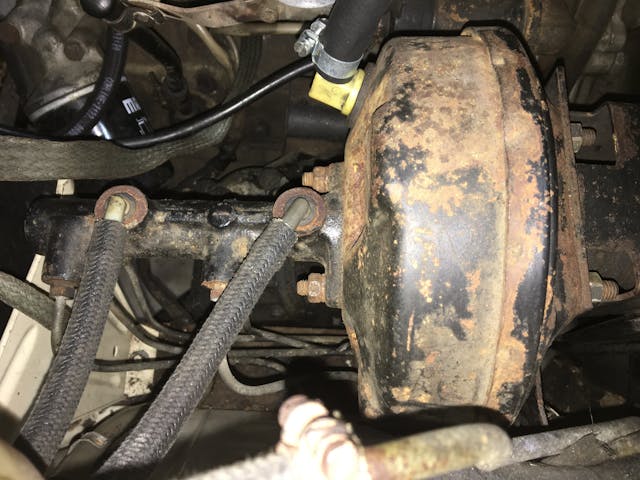
Now, in truth, there have been exceptions to this. I’ll swap batteries for friends, natch. And when my friend Bob—the guy with whom I road-tripped 3000 miles to Mid-America 02 Fest from Massachusetts to Arkansas and back—asked me if I would try to locate a snotty metallic rattle that occurred under the car at certain RPM, that was an easy favor for someone who ran and got me antifreeze when my car blew a coolant hose on a different road trip. And then there was the time my friend Mike bought two 2002tiis, had me sort them out, and offered me a week in his house in Nantucket (my wife really liked that). And after I sold my 1999 BMW Z3 roadster to our friend Kim, I continued working on it for her, including fixing it when her son ran it into a median strip, as I couldn’t stand the thought of the car being totaled and parted out (I eventually bought it back). And the whole episode of the “mitzvah 2002tii”—helping a widow sell the car her husband had bought new 50 years ago, including performing a lot more mechanical work than I’d anticipated—was enormously satisfying.
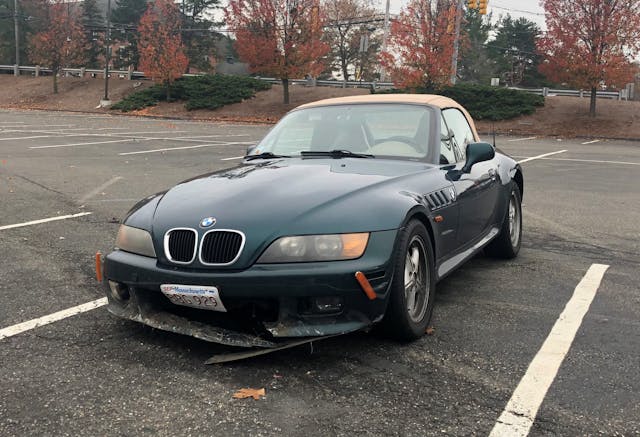
The big one—I mean huge—was installing the engine in my friend Alex’s piece-of-junk Passat wagon. I got into it like the frog not knowing when to jump out of the pot of water as temperature was increasing. The engine in the wagon died, Alex needed a place to park it “temporarily,” then he found a replacement engine and needed a place to put that. As winter neared, I needed it all out of my garage, and the only way to make that happen was to do most of the work myself. Alex is one of my dearest friends, and he is the contractor who did most of the work on our house, including building the garage. He has done me more favors and saved me more money than anyone, so helping him with his car was a no brainer.

In general, however, there’s a good reason to say no to repair jobs on cars that aren’t yours. True, part of that is risk and liability, but a bigger part of it is that if you wrench on your own cars for that combination of money-saving, self-reliance, and the Zen that comes from taking on a problem and fixing it your way, realize that much of that goes straight out the window when it’s not your car.
In other words, if you do it because it’s fun, make sure it stays fun.
***
Rob Siegel’s latest book, The Best of the Hack MechanicTM: 35 years of hacks, kluges, and assorted automotive mayhem, is available on Amazon. His other seven books are available here, or you can order personally inscribed copies through his website, www.robsiegel.com.
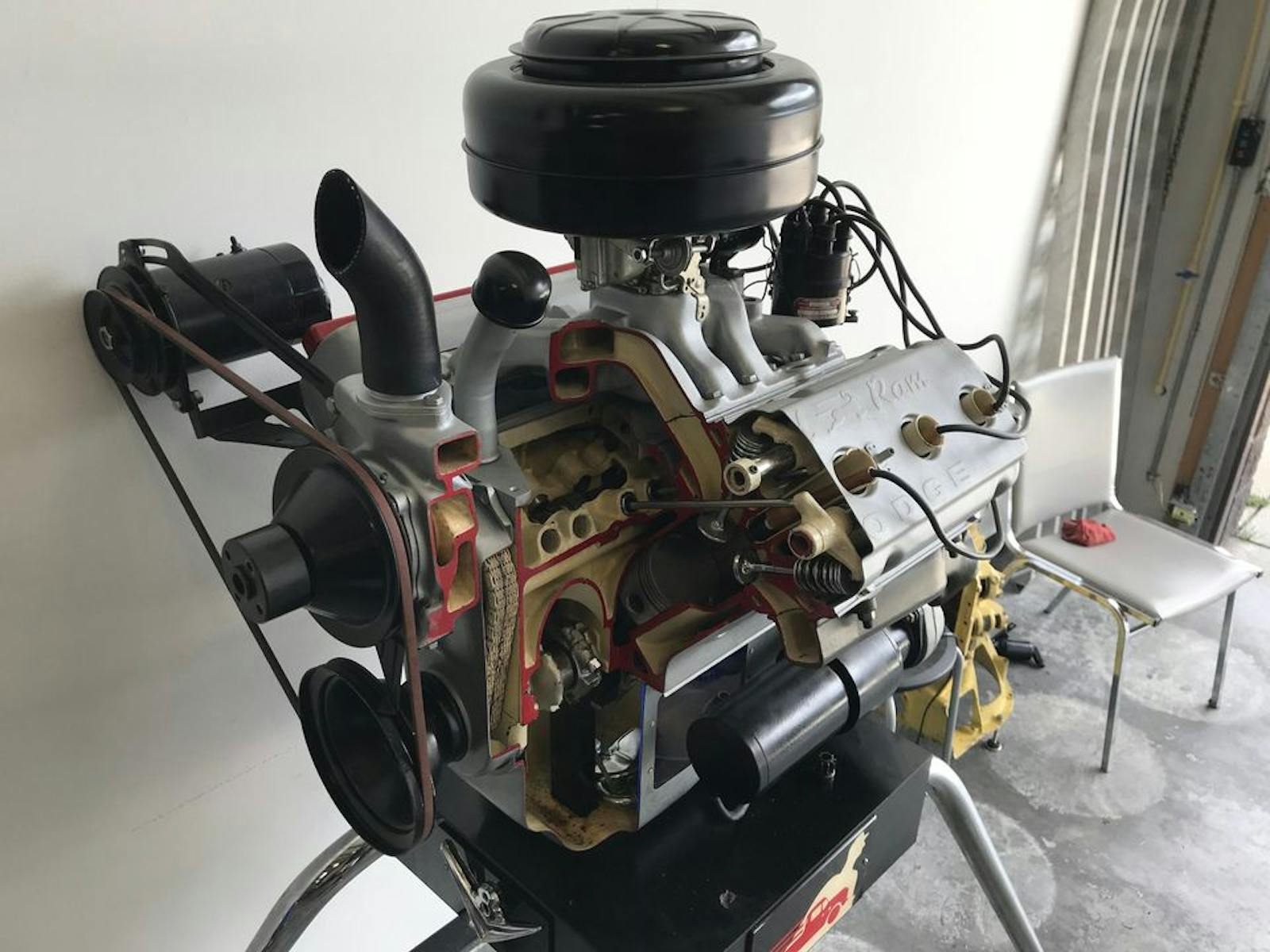
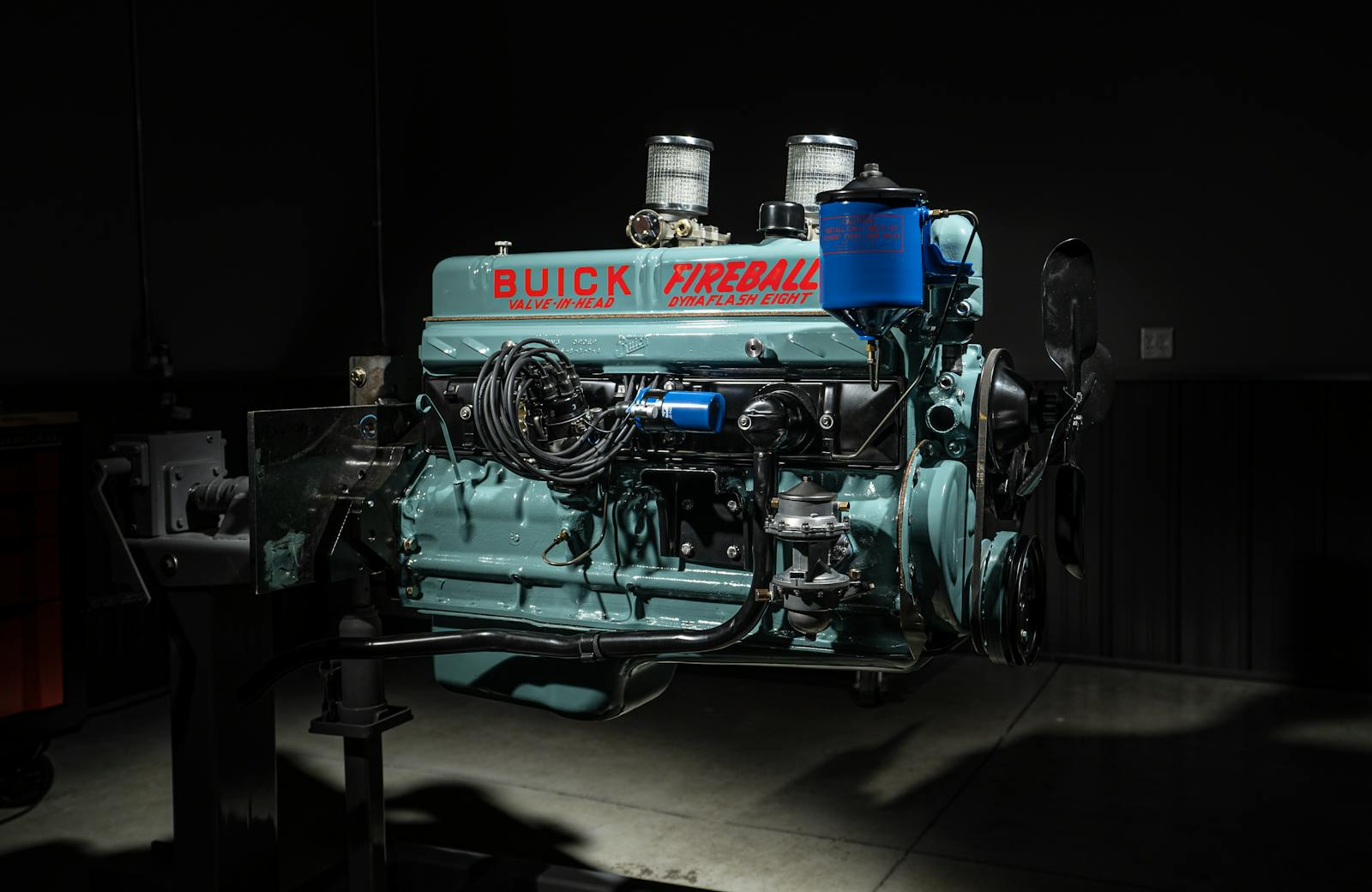
As a younger single guy, I helped a lady friend doing a brake job (calipers, pads, rotors, shoes, wheel cylinders) on her car. She bought the parts, I did the labor on a good portion of a Saturday. Didn’t get any money, but the ummm, benefits, were worth the labor.
Livin’ the dream :^)
Q: Do you work on cars? A: ONLY on my own! I can quit when I’m tired, if payment is involved, then it’s due at the completion of the work, not “Can I pay you at the end of the week?”; and finally, I won’t have to hear “Well, it wasn’t doing that before you worked on it!” This is what the years & experience have taught me! 🙂
Thanks for a really interesting article. I enjoy your writing. I know exactly the experience you described from helping a few friends with minor car or house repairs. My best friend and I often help each other with home maintenance and I help him with car repairs. But we keep this fairly quiet. Just about all our other friends don’t know one end of a screwdriver from the other. One of them (a wealthy man) is notorious for trying to get his house maintained for free. As someone else said, it’s the same with anything that involves tools. I have a friend who will cycle 20 miles away and if he gets a puncture he phones his wife, or me, some other sucker to ask for a lift home. I’ve shown him how to fix a puncture or change an inner tube but he refuses to carry a repair kit or pump. The latest problem is that I have acquired a reputation as a free toolhire business. I have slowly upgraded the cheap-as-chips tools I bought in student days and now have a half-decent collection. I find that the person who doesn’t own even a basic power drill doesn’t know how to use one and has no mechanical sympathy. I now refuse to lend power tools in particular as I have had 3 come back with noticeable damage.
Two good stickers I’ve got up in my garage.
The last guy who asked to borrow my tools is in the bottom drawer.
You can use my tools if I can use your girlfriend.
I find asking for a cash deposit for more than the tool is worth calms interest.
As for repairs, I rent my service bay for $100 an hour. Free advice and tool use. They also clean up the mess and take away the used parts.
A WISE MAN once said “Good Job” !
Like
I had a 1972 GT6 and it was reliable as hell and easy to fix as well. Water pump replaced in 20 min. Try that on any car today.
yup– Doing it for money is a problem even for licensed mechanics in licensed shops–multiply the problems by 10 for a DIYer— I’ve learned to say—OK I can give you a hand (you work with me) for anything more than something simple like a battery change-
Biggest problem I have with working on someone else’s ‘problem’ usually comes AFTER it is fixed. It doesn’t matter WHAT the problem was, if (make that WHEN) ANYTHING further that goes wrong, gets broken or stops working – was MY fault, since I was ‘the last one who worked on the _________!’ (insert whatever you want in the blank area – car, washing machine, computer, etc.). Not only that, but since is is ‘MY FAULT’, I’m not only expected to fix it, FREE, but also to provide whatever parts, etc., are needed to get it working again.
Sort of like an unlimited, non-expiring warranty – for anything and everything. The mind boggles at some of the ‘thought processes’ behind it, even TOTALLY unrelated problems, issues, etc..
January, 19xx. Michigan. Neighbor called. He had rebuilt the carburator of a fellow teacher’s Opel, and she was having trouble. Drove to her house. Car was outdoors. (Remember, January in Michigan.) He tried to start it with the air cleaner off while I watched gas flow into the venturi. It finally started, roughly, and I followed him to his garage. Long story short, we fished the old carb parts out of the waste basket and compared them to the new replacement parts. Sure enough, the replacement needle valve was shorter than the original, so the flow of gas into the float bowl never shut off. We put the original parts back in, and the problem was solved.
My sister’s second car was the infamous Chevy Vega. She bought it used and the seller had receipts for an engine rebuild. Turns out they just had new rings put in failed cylinders. A few hundred miles later it started burning oil like crazy. I suggesting selling the car, but she wanted it fixed “right”. So I ordered a sleeved short block and installed it over a weekend. Three weeks later she sold the car! I asked her why she made me do all that work if she was going to sell it anyway. Her reply, she didn’t want to dump it on someone else like she got dumped on. I appreciated her noble thought, but we put more into the car than she got for it (not including my labor). Would have been cheaper to just sell it for scrap. I did NOT learn my lesson and I still occasionally work on other people’s cars.
In 1977 a friend of my brother had a 1968 Cougar w a 302. It needed a valve job so I told him I would remove heads and have the heads redone and would do it for 85.00 labor. When I pulled the distributer out the drive shaft for the oil pump fell out and down into the oil pan it went. Bear in mind this was going on in December in Iowa. Feeling bad I told him I would remove pan to retrieve it at my expense, still for the 85.00 labor. When I removed the pan there were two driveshafts in there the one I was looking for and one that the last guy who worked on it left in and simply just replaced.
Love this article! It’s all so true — and you can double the negative consequences when considering bodywork. Close family members have shunned me for years because I had the audacity to save them thousands on work that is still holding up today. It always “takes too long”, “costs too much”…etc. These are all things I told them beforehand from experience. I refused until the pleading, promises and sob-stories finally swayed me. Guys, it’s as simple as this: “Lose a friend” or SAY “NO”!!!
Reminds me of when my (now ex-, but not because of this) wife “volunteered” me to fix her friend’s minivan because her friend’s research led her to believe the transmission fault she was experiencing was due to “just a sensor” and because I’m an electrical engineer who works on his own vehicles, it should be simple for me to replace “a sensor” (by their reasoning).
I looked up the actual service data for the minivan and discovered that replacing the part requires dropping the transmission pan, the valve body, and if I recall right, there are a couple of springs and accumulator pistons that drop out as well. Then you have to drop the gear selector shaft out from above after loosening a retaining clamp (and of course, the shaft was securely stuck by a ring of rust around its circumference).
I replaced the sensor with the warning that, because SHE had diagnosed the problem and bought the part, I would not be able to guarantee that her problem was fixed. Also replaced a broken engine ground wire as a favor. And Heli-coiled one pan bolt hole that someone had goobered up.
It took me two evenings to complete the work because of trouble finding a store with the pan gasket in stock (she’d neglected to buy that when she bought the sensors), and the whole while, she was pestering me to get her vehicle back.
That was the end of my working on cars for other people.
Years later, a different friend of my ex asked if I would change the brake pads on her SUV… sorry, no. I can recommend a trustworthy mechanic who charges actual labor time and no markup on parts, but I don’t fix things for people anymore, beyond maybe changing a battery. I’ll check out brake pad thickness, tire condition, etc. for friends and make recommendations on what to discuss with a shop, but I won’t do the repairs. Not worth the hassle, the worry about whether they’ll have problems later, or the liability.